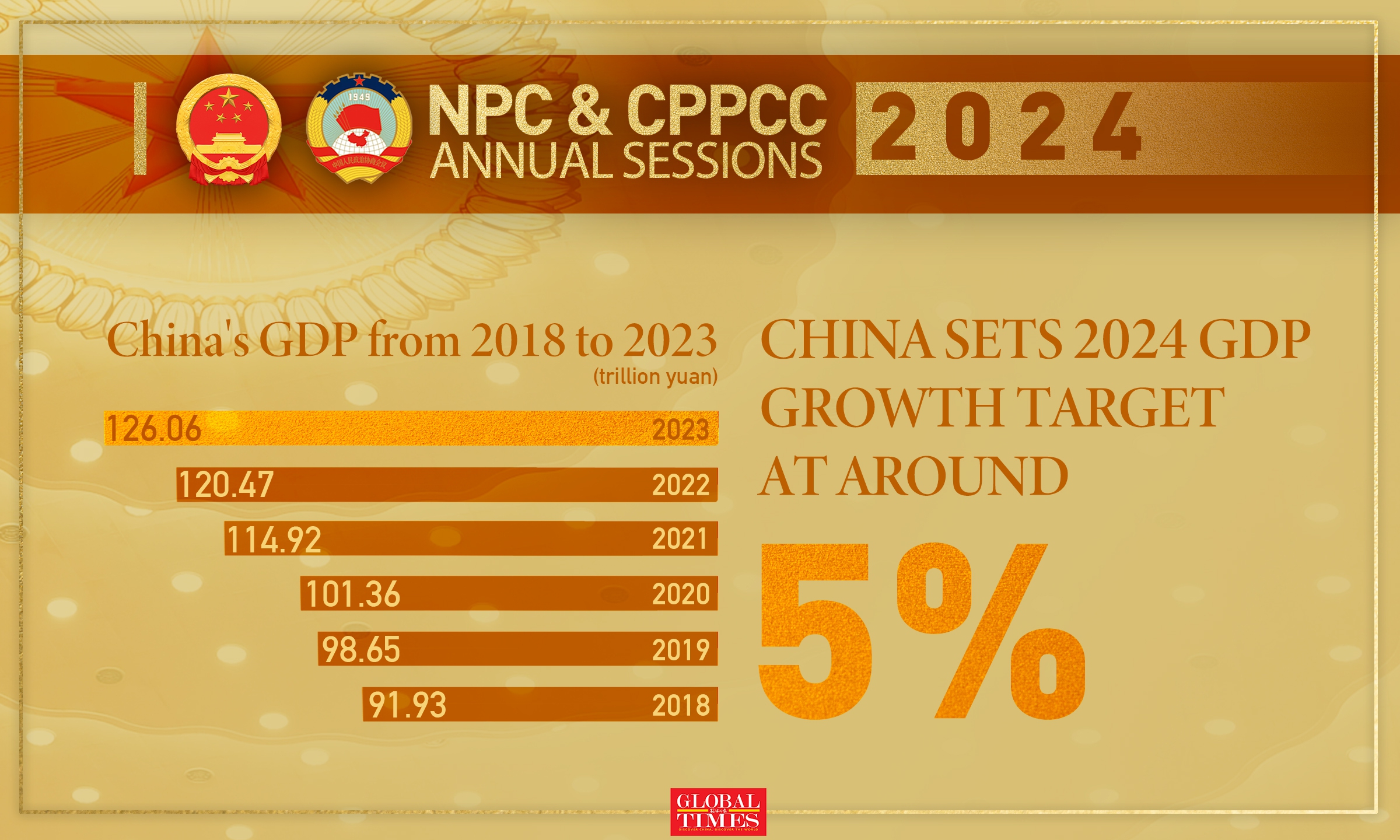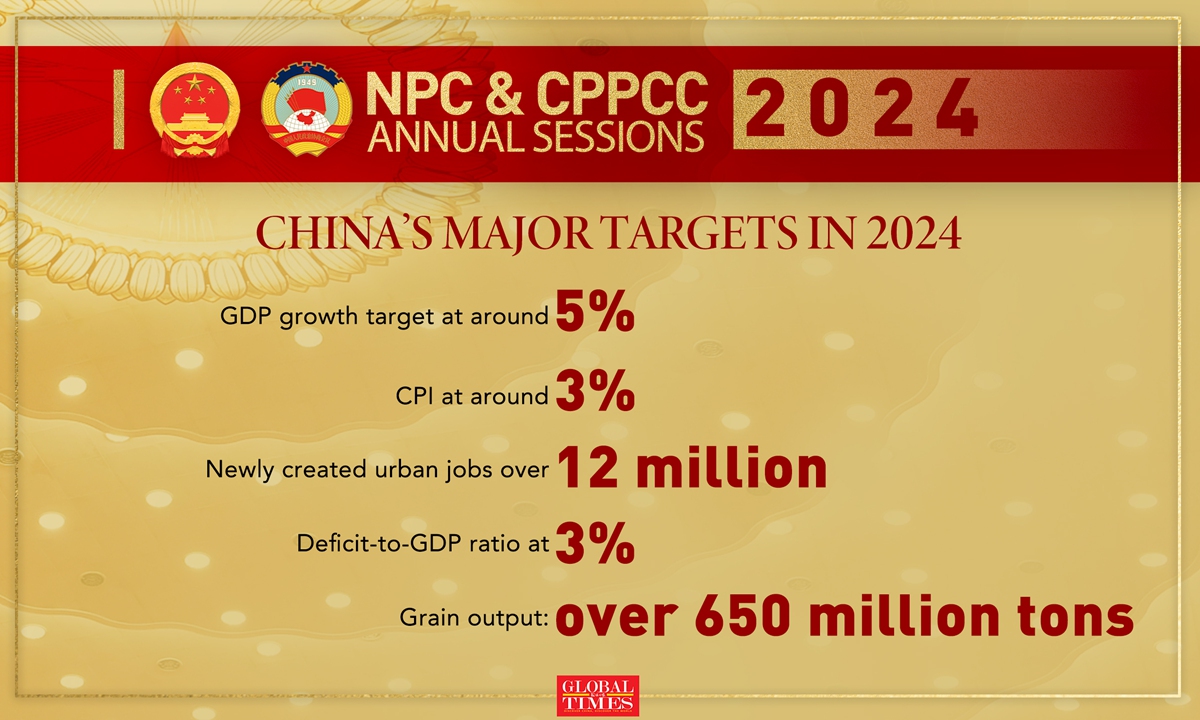China sets 2024 GDP growth target at around 5%, showing confidence in economic recovery

Graphic:Global Times
China on Tuesday set a growth target of around 5 percent for its economy in 2024, which exceeds expectations of some international institutions, demonstrating that the country's top policymakers remain confident in maintaining stable growth in the world's second-largest economy despite downward pressure both at home and abroad.The growth target of around 5 percent, the same as last year’s goal, means that China’s economy will still be one of the fastest-growing major economies and the biggest contributor to global growth, analysts said. Though challenges remain, China still has plenty of policy tools to ensure that the target will be met by the end of 2024, they said.
The annual official growth target was revealed by Premier Li Qiang in the Government Work Report that was delivered to the opening of the annual session of the National People's Congress (NPC), the country's top legislature, on Tuesday morning.
In addition to the GDP growth target, the Government Work Report on Tuesday also contained a slew of other targets. The deficit-to-GDP ratio, another closely watched figure, was set at 3 percent for 2024. The country aims to create over 12 million new urban jobs, and keep the consumer price index growth at around 3 percent, according to the report.

China's major targets in 2024
“In setting these targets, we considered evolving dynamics at home and abroad and other relevant factors as well as what is needed and what is possible,” the Government Work Report said.
It further noted that growth rate of around 5 percent is well aligned with the objectives of the 14th Five-Year Plan and the goal of basically realizing modernization. It also takes account of the potential for growth and the conditions supporting growth and reflects the requirement to pursue progress and strive to deliver.
“Achieving this year's targets will not be easy, so we need to maintain policy focus, work harder, and mobilize the concerted efforts of all sides,” it said.
The NPC session and the ongoing annual meeting of the Chinese People's Political Consultative Conference National Committee, the top political advisory body, are collectively known as the two sessions, where national lawmakers and political advisers discuss and set social and economic development goals for the year.
One of the most closely watched items on the agenda during the two sessions is how China sets its official GDP growth target, which reveals policymakers’ assessment of the economic outlook and policy priorities for the year.
“This is a relatively high target, which shows that the central government has relatively high confidence in [the economy],” Wan Zhe, an economist and professor at the Belt and Road School of Beijing Normal University, told the Global Times.
The target of around 5 percent is the same level as last year, but it exceeds some expectations for China’s growth in 2024. For example, the IMF, in its latest World Economic Outlook report released in January, projected that China’s GDP will grow by 4.6 percent in 2024. A rate of around 5 percent would also be faster than the projected global growth rate of 3.1 percent or the forecast of 1.5 percent for advanced economies and 4.1 percent for emerging market and developing economies.
In 2023, China's economy grew by 5.2 percent year-on-year, exceeding the official target of about 5 percent, in what officials called a “hard-won” achievement.
While the Chinese economy faces challenges and risks amid a global economic downturn and an increasingly complex geo-economic landscape, Chinese policymakers still have plenty of policy tools at their disposal to tackle those challenges and ensure stable growth, economists said.
"Despite temporary challenges to the Chinese economy and short-term fluctuations in the capital market, China will be able to overcome a series of challenges faced by the economy following policy adjustments and strengthened regulations," Cao Heping, an economist at Peking University, told the Global Times.
